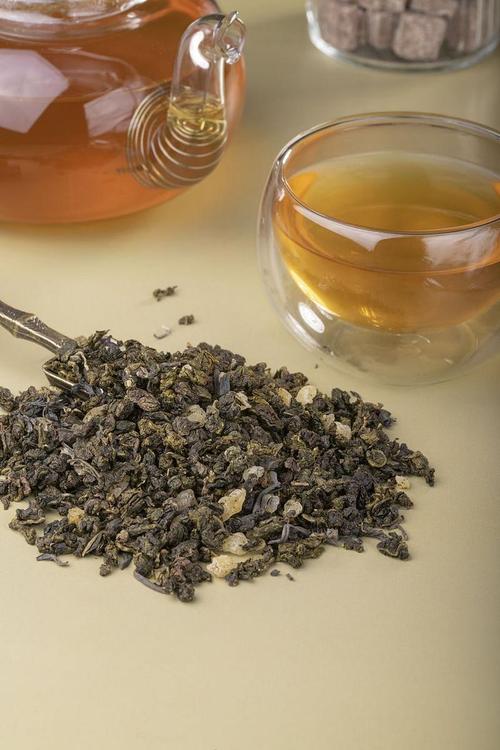Oolong tea, a traditional Chinese tea renowned for its complex flavor profile and partial oxidation, occupies a unique position between green and black teas. Its intricate production process, involving controlled enzymatic oxidation and careful roasting, not only shapes its aroma but also enriches it with a diverse array of bioactive compounds. Emerging scientific research is shedding light on oolong tea’s potential as a therapeutic beverage, offering benefits ranging from metabolic support to neuroprotective effects.

1. Enhanced Antioxidant Capacity
Oolong tea is a rich source of polyphenols, including epigallocatechin gallate (EGCG), theaflavins, and thearubigins. A 2023 study in Food Chemistry demonstrated that oolong tea extracts exhibit potent free radical-scavenging activity, surpassing even green tea in certain assays. These compounds neutralize oxidative stress, which is implicated in aging, chronic diseases, and DNA damage. The partial oxidation during processing enhances the stability and bioavailability of these antioxidants, making them more effective in vivo.
2. Weight Management and Metabolic Health
Oolong tea has long been associated with weight loss in traditional Chinese medicine. A 2022 clinical trial in Nutrients found that daily consumption of oolong tea significantly reduced waist circumference and visceral fat in overweight adults. Its polyphenols activate fat-burning enzymes (e.g., AMPK) and inhibit lipase, while caffeine and EGCG synergize to boost metabolic rate. Additionally, oolong tea improves insulin sensitivity, as shown in a 2021 animal study published in Metabolism, offering promise for diabetes prevention.
3. Cardiovascular Benefits
The tea’s unique combination of polyphenols and caffeine may enhance cardiovascular function. A 2023 review in the Journal of Cardiovascular Pharmacology highlighted oolong tea’s ability to lower LDL cholesterol, triglycerides, and blood pressure. Its anti-inflammatory properties reduce endothelial dysfunction, a critical factor in atherosclerosis. Emerging research also suggests oolong tea may inhibit platelet aggregation, lowering thrombosis risk.
4. Cognitive Function and Neuroprotection
Oolong tea’s theanine and EGCG content may protect against age-related cognitive decline. A 2022 study in Aging showed that oolong tea extract improved spatial memory in aged mice by reducing amyloid-beta plaques and oxidative stress. Human studies, such as a 2020 trial in Nutritional Neuroscience, correlate regular consumption with enhanced attention and mood, likely due to increased alpha brainwave activity.
5. Gut Health and Microbiota Modulation
Oolong tea polyphenols act as prebiotics, nourishing beneficial gut bacteria like Bifidobacterium and Lactobacillus. A 2021 study in the Journal of Agricultural and Food Chemistry revealed that oolong tea consumption increased microbial diversity and short-chain fatty acid production, enhancing gut barrier function. These effects may alleviate symptoms of IBS and reduce inflammation-related disorders.
6. Antimicrobial and Oral Health Benefits
The catechins in oolong tea exhibit broad-spectrum antimicrobial activity. A 2022 review in Molecules noted their efficacy against Streptococcus mutans, a primary cause of dental caries. Oolong tea rinses may also reduce bad breath and gingivitis. Emerging research suggests potential antiviral effects against herpes simplex virus (HSV) and influenza, though human trials are needed.
7. Skin Health and Anti-Aging
Topical application of oolong tea extract shows promise in skincare. Its antioxidants neutralize UV-induced free radicals, while anti-inflammatory compounds soothe irritated skin. A 2023 study in the Journal of Cosmetic Dermatology demonstrated oolong tea’s ability to inhibit collagenase, an enzyme that degrades skin elasticity.
Conclusion
Oolong tea’s medicinal value stems from its harmonious balance of oxidation and bioactive compounds, offering a multifaceted approach to wellness. From metabolic regulation to cognitive enhancement, its benefits are supported by a growing body of evidence. As a versatile and flavorful beverage, oolong tea exemplifies how traditional wisdom and modern science can converge to promote holistic health. For those seeking a natural ally in their health journey, oolong tea may be a valuable addition to a balanced lifestyle.



